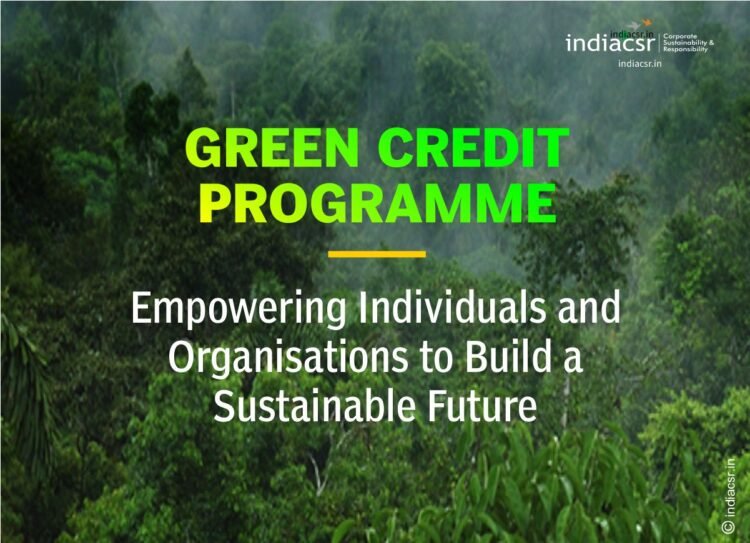
The Central Government, on June 26, 2023, established the Green Credit Program, a voluntary domestic market mechanism in the exercise of the power conferred by sub-section 2 (iii) of section 3 of the Environment (Protection) Act of 1986 (29 of 1986).
Green Credits refer to a unit of incentive for a specific environmentally beneficial activity. In practice, these credits will be tradable on a domestic market platform. Mainly, the goal of the Green Credit Program is to establish a market-based approach to incentivize actions that positively impact the environment.
The Green Credit Program, based on the voluntary participation of all stakeholders, will generate Green Credits through various activities to promote environmental sustainability and shall include activities like tree plantation, water conservation, reuse and harvesting, adoption of natural and regenerative agricultural practices, land restoration, efficient waste management, measures to abate air pollution, conservation and restoration of mangroves, eco mark labelling and sustainable building and infrastructure development.
All entities registered for Accredited Compensatory Afforestation under the guidelines issued by MoEFCC vide No.FC-11/159/2022-FC, dated January 24, 2023, shall register under the program with the Green Credit Registry.
Moreover, to streamline the Green Credit Program, the Central Government will establish digital processes encompassing self-assessments, registration, issuance, monitoring, audit, and verification of eligible Green Credit activities. Accordingly, the efficient and transparent program will employ a standardized electronic database known as the Green Credit registry, which will store pertinent information related to the issuance, ownership, transfer, acquisition, and tracking of the transactions of Green Credits.
Besides, the Indian Council of Forestry Research and Education will administer the program. It will develop guidelines and processes for implementation, establish technical committees to accredit verifiers and registries, issue digital Green Credits, and maintain a Green Credit Registry to record the issuance, holding, transfer, and acquisition of Green Credits.
Additionally, the Ministry shall pilot the program by identifying two to three activities from the existing sectors. A Steering Committee comprising representatives from relevant ministries, industry associations, and domain experts will oversee the governance of the Green Credit Programme.
The Green Credit Program is pivotal in promoting the widespread adoption of rooftop solar installations in urban areas of India. The program incentivized residential segment and also supporting commercial building owners to embrace solar energy by installing solar panels on their rooftops by providing affordable financing options and policy incentives. Essentially, this shift towards clean and renewable energy sources aimed to decrease reliance on fossil fuels while enabling building title-holders to generate clean electricity and reduce their electricity bills.
Furthermore, the surplus power generated through rooftop solar installations was fed back into the grid, making a valuable contribution to the overall renewable energy capacity of the country. Through the Green Credit Program, India made significant strides towards a greener and more sustainable energy landscape, empowering individuals and businesses to participate in the transition to clean energy actively.
Primarily, the Green Credit Programme is part of the Government’s broader initiative, LiFE (Lifestyle for Environment). LiFE is a grassroots movement that seeks to combat climate change and encourage a healthy and sustainable lifestyle based on conservation and moderation. Upon the announcement of the draft, the Government will introduce a waiting period of 60 days before the implementation of the finalized rules. This period allows for adequate time for stakeholders and the public to provide feedback, comments, and suggestions on the draft. By considering and incorporating valuable input received during this period, the Government aims to ensure a robust and well-informed implementation of the Green Credit Program.
Indeed, the introduction marks a momentous step towards battling climate change and promoting sustainable development. By incentivizing environmental actions and encouraging a mass
movement around sustainable lifestyles, the program aims to create a greener and healthier future.
At Navitas Solar, a leading solar module manufacturing company, we believe that the Green Credit program initiated by Central Government is a new and innovative way to incentivize environmental action. It has the potential to impact the environment significantly, and it is a welcome step by the Indian Government.
Authored by
Vineet Mittal, Director (Finance & Strategy) and Co-founder, Navitas Solar.






















